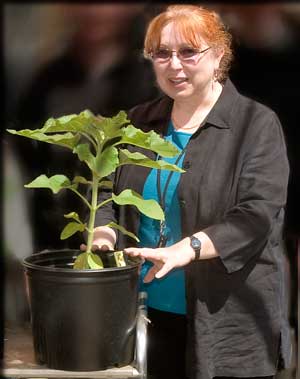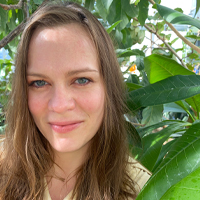Faculty Profile
Lee Newman


Associate Professor and Chair of Chemistry
Department of Chemistry
117 Jahn Laboratory
Education
-
PhD, Rutgers University and Robert Wood Johnson Medical School, 1993. Microbiology and Molecular Genetics. Genetics of Fruit Ripening proteins in peppers
Research Interests
My research interests involve the use of plants to deal with environmental problems. The most common form of this is phytoremediation, which is the use of plants to clean up environmental contaminants. I am interested in the growth of plants for the production of energy; biomass, ethanol and biodiesel. I am interested in and have done research in environmental toxicity resulting from plant exposure to toxicants, constructed wetland remediation, using microbes to enhance remediation potential of plants, using native plants for remediation and restoration, the role of plants in monitored natural attenuation and carbon sequestration. We are looking at the genetic interaction between plants and nanoparticles and how the uptake of nanoparticles can impact other organism. We are also studying the use of hyperspectral imaging to track environmental pollution uptake by plants. A major area of research is the interactions between plants and endophytic bacteria. In addition to increasing phytoremediation potential, these biological interactions are proving to enhance biomass production, increase drought resistance, and have a significant implant on floral development and fruit production, which can have major impacts on bioenergy production as well as crop productivity in marginal soils.
Current Graduate Advisees
 Daniel Collins
Daniel Collins
[email protected]
- Degree Sought: PHD
- Graduate Advisor(s): Newman
- Area of Study: EFB Chemical Ecology
Graduate Research Topic
My research regards the effectiveness of therapeutic horticulture with military veterans in Central New York. Primarily, whether or not such programs can improve the mood of a patient in the hospital, and can we predict which populations would benefit from such a program.
Favorite Quote
How did it get so late so soon? It's night before it's afternoon. December is here before it's June. My goodness how the time has flewn. How did it get so late so soon? - Dr. Seuss
 Morgan Fatowe
Morgan Fatowe
[email protected]
- Degree Sought: PHD
- Graduate Advisor(s): Pflug and Newman
- Area of Study: Environ & Forest Chemistry
Links
Web Link
Graduate Research Topic
Aquatic Photochemistry of Livestock Feed Additives
Past Studies
B.S. Biochemistry from Florida International University (FIU)
 Samantha Freeman
Samantha Freeman
[email protected]
- Degree Sought: MPS
- Graduate Advisor(s): Newman and Pflug
- Area of Study: Environ & Forest Chemistry
Graduate Research Topic
Uptake mechanisms and kinetics of PFAS in N. Tabacum and subsequent enzymatic stress response
 Amalia Kenyon
Amalia Kenyon
[email protected]
- Degree Sought: PHD
- Graduate Advisor(s): Newman
- Area of Study: EFB Plant Science & Biotechnology
Graduate Research Topic
Phytoremediation of per-and polyfluoroalkyl compounds using wetland and phreatophytic plants. Development of novel non-invasive detection methods to identify environmental contaminants.
 Sveta Kononenko
Sveta Kononenko
[email protected]
- Degree Sought: PHD
- Graduate Advisor(s): Newman
- Area of Study: Environ & Forest Chemistry
 Will Weinberg
Will Weinberg
[email protected]
- Degree Sought: MS
- Graduate Advisor(s): Newman
- Area of Study: Environ & Forest Chemistry
 Chloe Wiley
Chloe Wiley
[email protected]
- Degree Sought: PHD
- Graduate Advisor(s): Newman
- Area of Study: Environ & Forest Chemistry
 Ellen Wu
Ellen Wu
[email protected]
- Degree Sought: PHD
- Graduate Advisor(s): Newman
- Area of Study: Environ & Forest Chemistry
 Nicole Wuerslin
Nicole Wuerslin
[email protected]
- Degree Sought: PHD
- Graduate Advisor(s): Newman
- Area of Study: Environmental Science